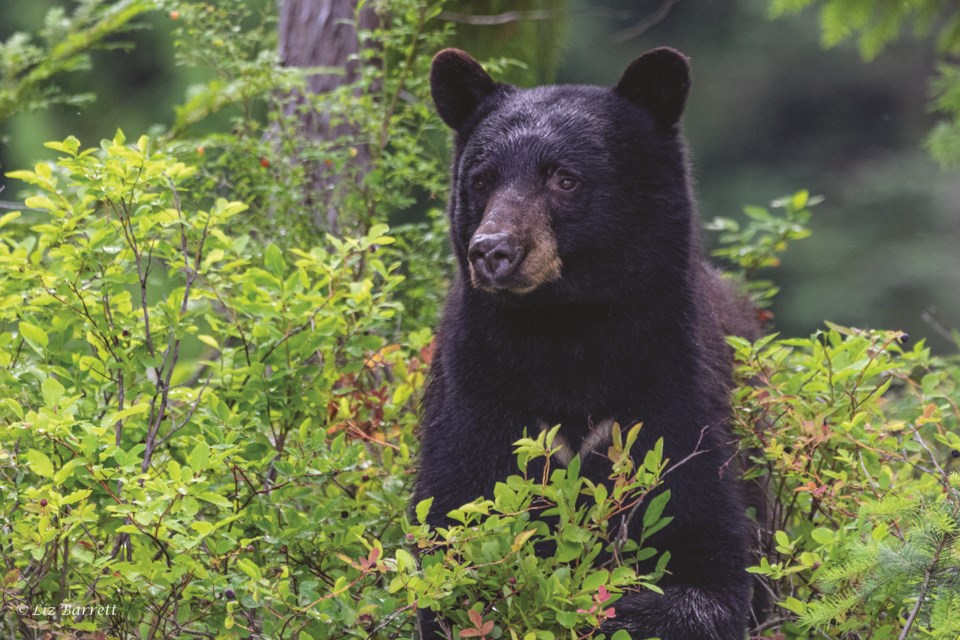The Millar Creek portion of Whistler's Valley Trail is closed after the BC Conservation Officer Service (COS) received a report of an aggressive black bear in the area.
In a post to social media on May 2, the Resort Municipality of Whistler (RMOW) said the encounter reportedly occurred near the Alta Lake Road—also known as Westside Road—entrance to the path.
As a result, the Millar Creek Valley Trail is closed from its north Function Junction entrance to Alta Lake Road, "to give the bear time and space."
Whistler locals and visitors are reminded to keep dogs on a leash while out on a walk, and to stay a minimum of 100 metres away from bears at all times. "If you do encounter a bear, you should make your presence known by speaking in a firm, calm voice and slowly back away from the bear," the RMOW advised in the post. "The use of bear bells or such will let a bear in the area know that somebody is approaching and they can move away."
Bear sightings in residential areas can be reported to the COS by phone at 1-877-952-7277. Early reporting allows COS members time to assess a situation and for early intervention if needed, all of which helps prevent human-wildlife conflict.
'Lethargic,' 'emaciated' black bear sow euthanized; cubs sent to Critter Care
The trail closure comes following a tragic start to black bear season in Whistler, after Sea to Sky COS members determined humane euthanization was, unfortunately, the best course of action for a lethargic, emaciated black bear sow spotted in the Rainbow neighbourhood last month.
The bear was reported to COS on April 20 by concerned residents who witnessed the generally unresponsive sow lying in a backyard, with two small cubs nearby. The COS responded and, after observing the sow and cubs from a distance, "decided to give her time and hoped for condition improvement and movement back to the forest without intervention," according to another RMOW post.
The COS returned to find the sow's condition had not improved. The bear "was extremely emaciated, weighing 44lbs, and suffering," the RMOW said.
After coming to the conclusion that humane euthanization was best for the bear, COS members, alongside a provincial wildlife veterinarian and wildlife biologist, assessed her cubs before deciding to send the pair to Critter Care Wildlife Rehabilitation, "[d]ue to their body condition and lack of food availability" in Whistler.
The cubs will remain at the Langley, B.C. facility for "a short time," and will be released back into their natural habitat once their health and body weight improves.
"Although this is a sad start to bear season, prompt reporting allowed the situation to be dealt with quickly and the cubs’ health and future look brighter now," the RMOW noted.






